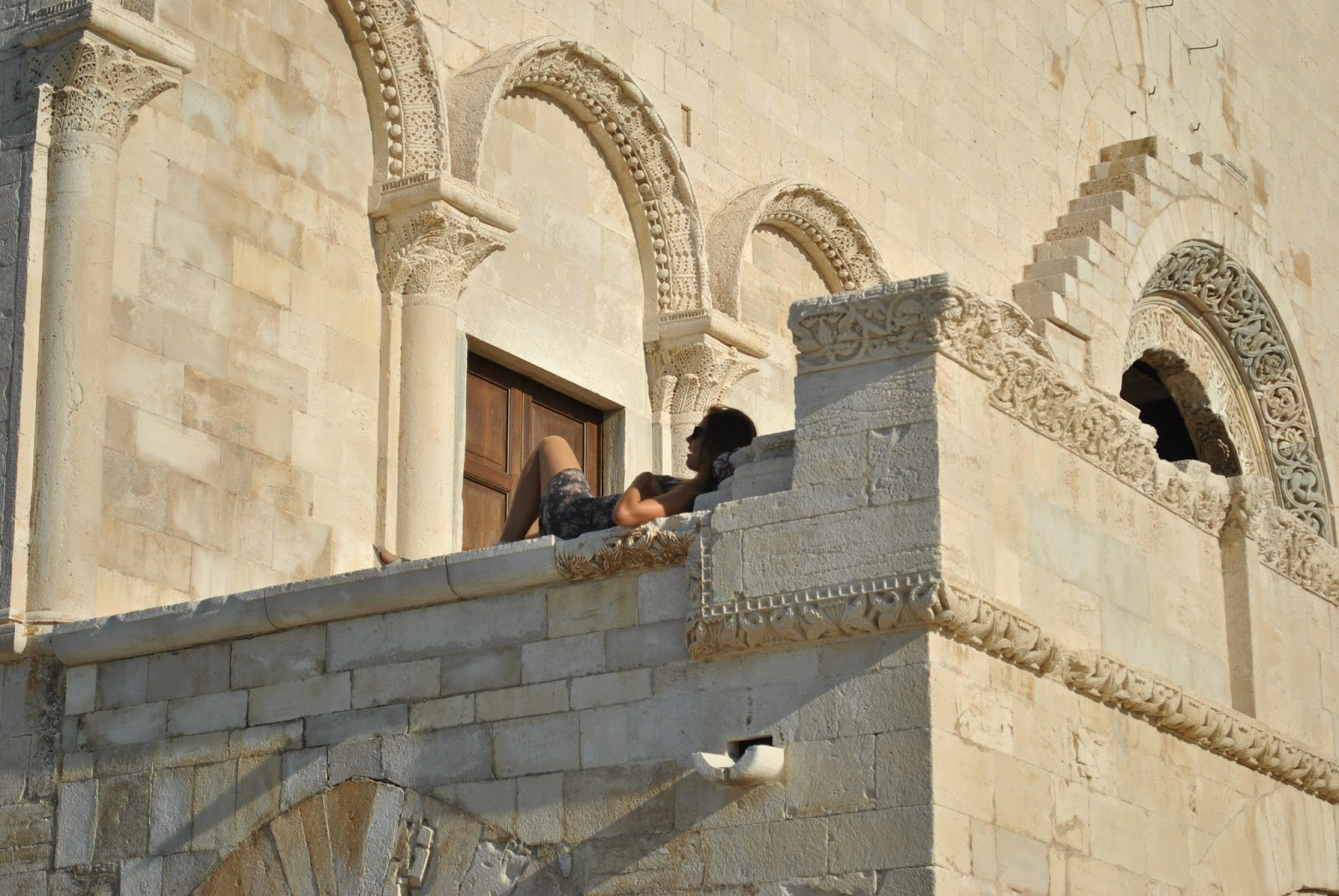The night life is sparkling.
Many
fishing boats are docked there. Therefore, if you wish to eat fresh fish you
know where to go to.
I walk
around the inner city and I find an interesting advise which says that Trani is
a città slow.
It adds: città del vivere bene (town where you can live well).
This movement is inspired by the slow food organization.
It adds: città del vivere bene (town where you can live well).
This movement is inspired by the slow food organization.
The main
aims of the città slow are:
- Making life better for everyone living in an urban environment.
- Improving the quality of life in the cities.
- Provide inspiration for a healthier lifestyle.
- Protecting the environment
Talking about the history, Trani has lived its golden age during the middle age.
Its port,
well placed for the crusades, developed greatly, becoming the most important
one on the Adriatic sea.
In the 12th
century, some important families from the Italian Maritime
Republics such as Venice, Pisa, Amalfi established themselves in Trani.
Trani hosts one of the largest Jewish community of Southern Italy.
We have to remember
that under the Swabians, the entire South of Italy lived a time of prosperity.
Additionally, Jews, Muslims and Catholics used to live all together in peace.
Trani was the birthplace of one of the greatest medieval rabbis of Italy: Rabbi Isaiah ben Mali di Trani (1180 - 1250)
Additionally, Jews, Muslims and Catholics used to live all together in peace.
Trani was the birthplace of one of the greatest medieval rabbis of Italy: Rabbi Isaiah ben Mali di Trani (1180 - 1250)
Then, under the Anjou and Aragonese rule,
the Jewish community was persecuted by the Dominicans, who notoriously played a key role during the Holy Inquisition.
For example, the Scolanova Synagogue was built in the 13th century.
Then, it was confiscated around the 1380, and converted for use as a church.
In 2006,
the building was de-sanctified by the church and returned to the Jewish
community.
From a cultural and religious perspective, Apulia seems to me like Andalusia in Spain.
Both these regions worked as connections between East and West.
From a cultural and religious perspective, Apulia seems to me like Andalusia in Spain.
Both these regions worked as connections between East and West.

The arches of the Romanesque portal are beautifully ornamented, in a manner suggestive of Arab influence.
I guarantee you that
this is a faboulus wine, ideal to accompany sweets, particularly those made by almonds.
If you wish to see more pictures, please click here
Take it slow










No comments:
Post a Comment